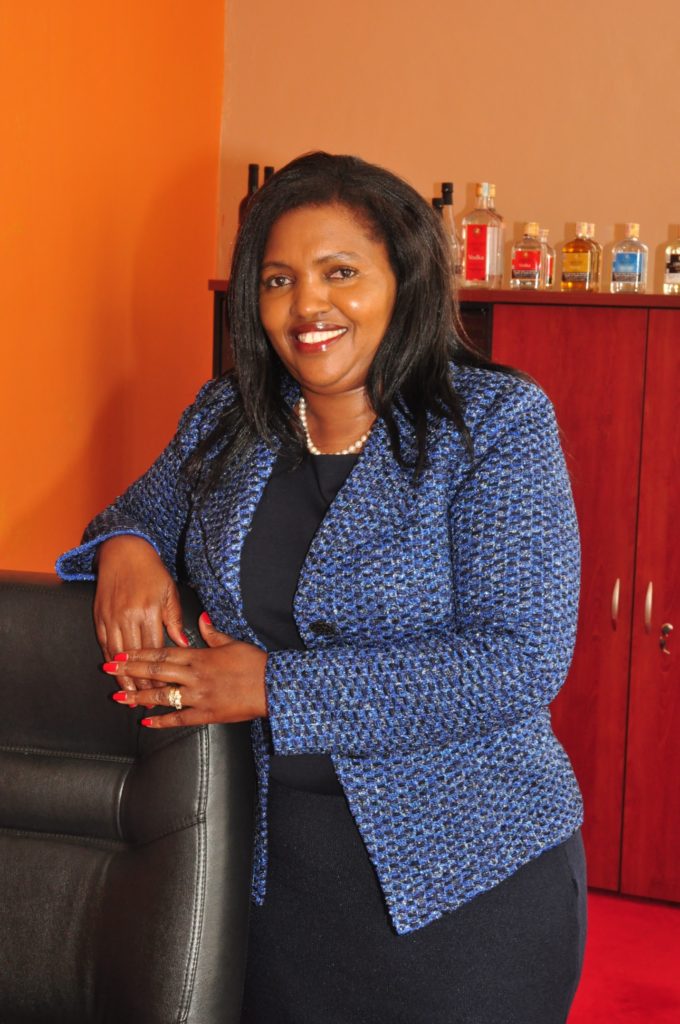Brewing in Africa has been seen as a sector which is predominantly male-dominated and so when a woman is successful in this sector, many wonder how she achieved the feat.
This is the story of Tabitha Karanja, CEO, Keroche Breweries Limited Kenya, who through handwork and resilience has built a vibrant business which has served both the high and low-income earners in Kenya.
While speaking with Amazons Watch Magazine, the CEO shares her leadership experience as well as some of the things which have kept her afloat in the business. Except:
In few sentences, please describe the person TABITHA KARANJA.
I am the co-founder and Chief Executive Officer of Keroche Breweries Limited for the last 19 years, which is the first largest locally fully owned brewery with a capacity of producing 110 million litres of beer annually.
I am an entrepreneur, also the founder and patron of Keroche Foundation which seeks to give a hand up to the upcoming young entrepreneurs.
Finally, I am a wife and a mother of four.
Did you have any fears, growing up as a young girl? And did those fears affect your drive to aspire in your future life as an adult?
Well, I had no fear. Largely because I was the firstborn in a family of 10. This meant I started responsibilities and leadership at a young age and this played a key role in shaping me.
However, growing in a humble and normal poor African family I hated poverty and how we lived. I always believed life can be better and that motivated me to work hard to make our lives better and bring a positive change. I believe this drive shaped my life.
Kindly tell us some of your life-changing experiences as the founder of Keroche Breweries?
When I began, I always wanted to go into manufacturing. In 1996 I did some research and found a gap in the liquor market. The then player only focused on the middle and upper markets while the lower market was neglected and left to consume anything mostly of which was unhealthy. I decided to close this gap by producing products for the lower end of the market that was healthy, affordable and met international standards. Little did I know that the market was jealously guarded; Breaking that monopoly that existed for over 8 decades was one of the biggest challenges that I have ever gone through but I couldn’t give up because looking back at it today, it could have broken many hopes of upcoming entrepreneurs.
Later while working on the lower market, I realized that the middle and upper market did not have a choice. I decided to give them a choice. This choice needed to be different and of the highest quality to give people a better choice. Therefore in 2008, we came up with a natural, 100% malted beer, sugar-free, with no additives and no hangovers. Shortly after seeing our progress, the multinationals then resulted in all manner of unfair and uncouth practices geared towards stopping all the products penetration to the market.
However, with the incessant support of the Kenyan people and now Africa supporting us, we have achieved tremendous growth from an initial investment of USD 2000 to now over USD 200,000 million, capacity from 10 million to 110 million litres of beer annually combined with remarkable growth in our wines and spirit sector, 5 employees to over 350 directly employed permanent professionals and thousands along the supply and distribution chain. Currently, we are now eyeing the African Market.
The story of women’s involvement in the brewing industry dates back to 1800 B.C when brewing was among a woman’s daily chores in ancient Sumerian and Egyptian societies; at what point was the industry cordoned off as a male-dominated space? In your opinion, what can women do to rise and carve out their own prominent space in this industry and market?
During those many years ago, women used to brew but only for home consumption. However, as time evolved the commercial brewing needed investment in finances, machinery, management teams and professionals. I think that contributed to the rise of male dominance dues to the limitation of women access to finance for investment. However, I think women can now take up this and all they need to do is believe in themselves, be prepared to take risks and get out of their comfort zones.
As a dogged pacesetter and a force to be reckoned with in the brewing industry in Africa; how do you think women can manoeuvre through the physicality associated with the brewing job as well as navigate the assumptions of being a woman in this industry; to successfully following their passion and making a real impact?
Brewing is like any other business where you don’t necessarily need to be a brewer or an engineer and a technical professional in that field just like the way you don’t need to be a farmer to venture in the milk industry. However, as an investor, you need to put the right structures, take risks, be innovative and build brands that can compete globally. Eventually, you need to aspire to give back by using your experience to build other entrepreneurs.
What do you think can be done to curb actions that bring about marginalization along gender lines?
The family structure accords responsibilities differently. Women always take up more roles than men. We need to support that ideology and replicate in the working environment and corporate world.
We also need to stand up against violence towards women because it instils fear in them.
In addition, we should encourage and push a change of the historical perception that women are weaker than men. Let’s all believe that women can perform as men given a chance and equal opportunity.
We also need to encourage women to own properties and in this maybe advocate for laws that protect women owning properties. This will give them the security that they can use to borrow equity to finance their businesses.
Finally, generally, women give up easily when the going gets tough. We need to build resilience and remain focused.
How do you balance work and family life, giving your position?
I believe that it’s quite imperative that when growing a business, you recognize that the family is very important. Having that in mind you need to always balance between family and work. I always create ample time for my family.
What’s the best way for the readers of Amazons Watch Magazine to connect with you?
They can connect with me through my Facebook: Tabitha Karanja, MBS and on twitter through @TabithaKaranja




